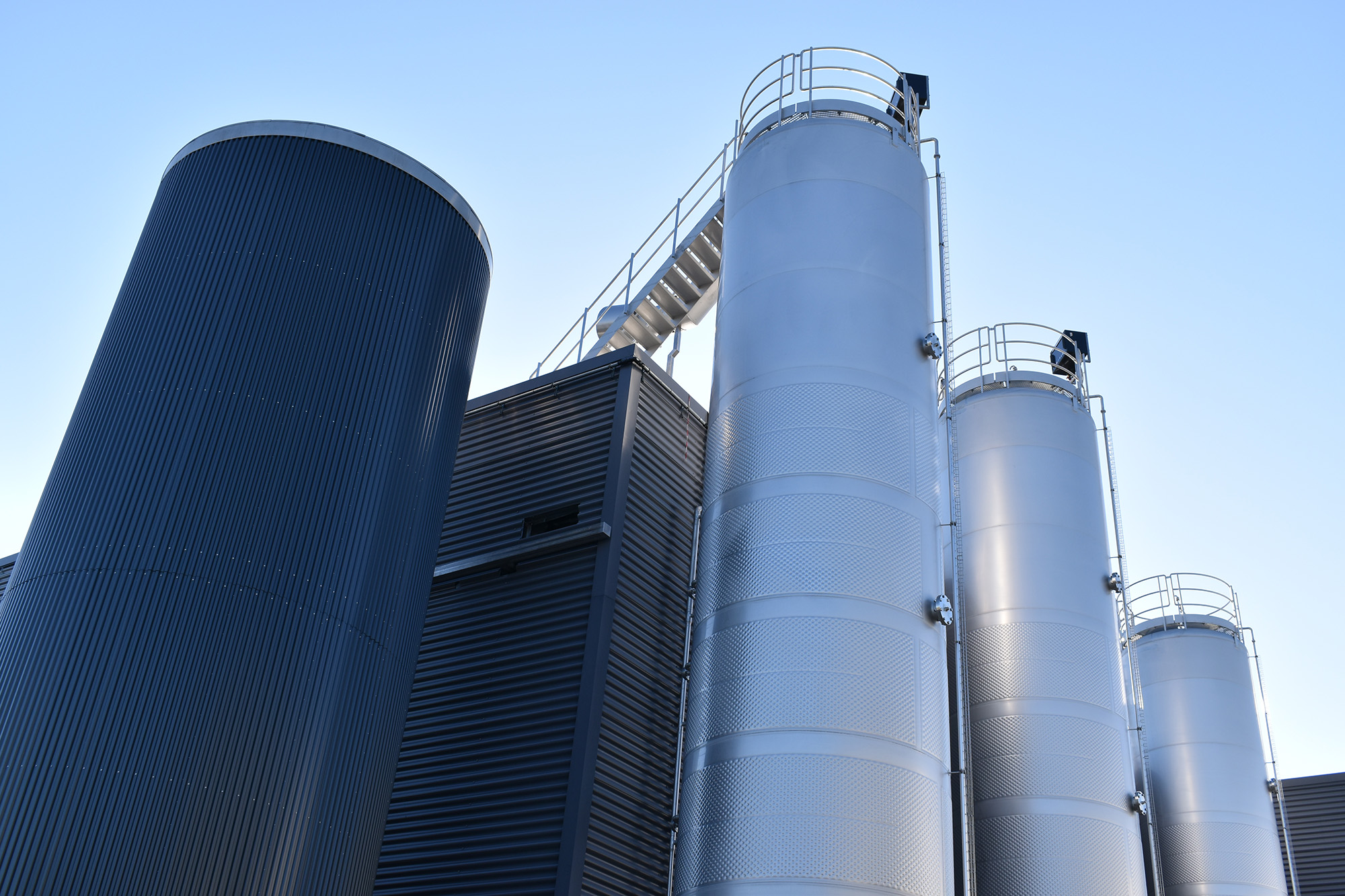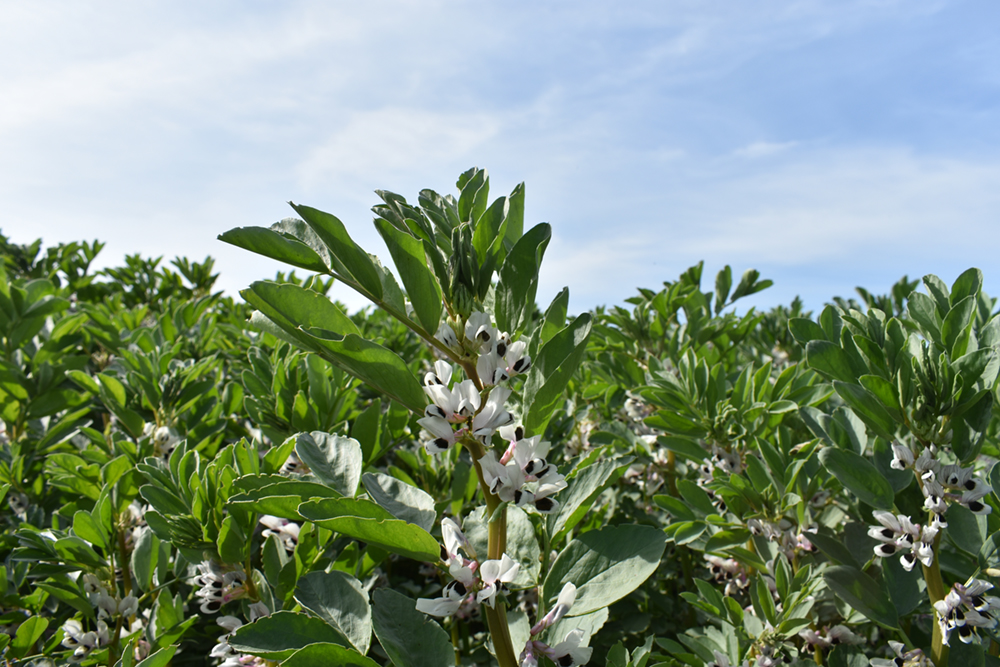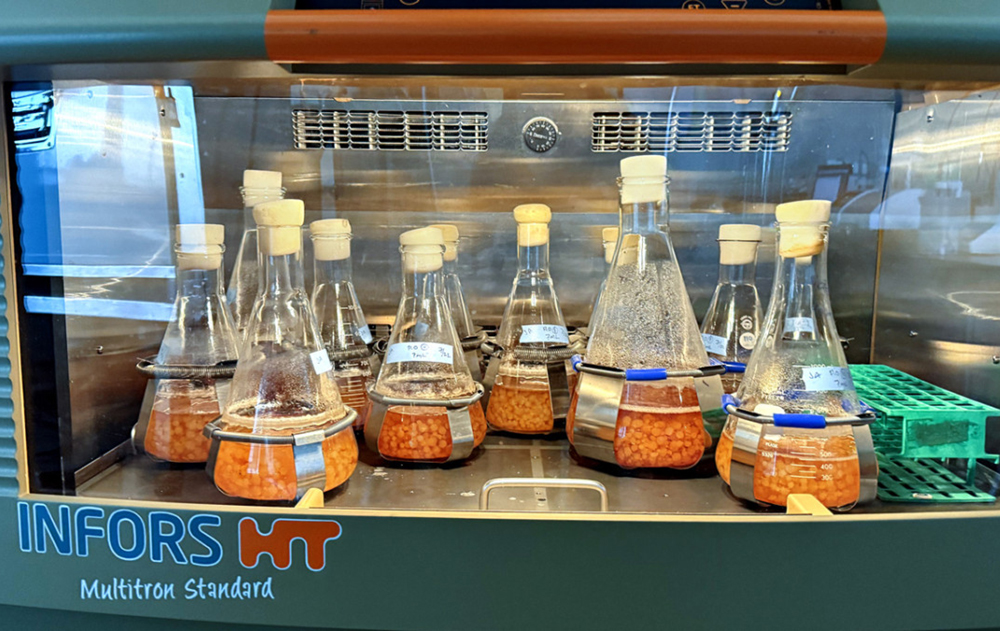

The Protein Brewery’s US$32 million push: inside the pivot from proof to scale
The Protein Brewery is no longer just a pilot project in Breda. With a fresh €30 million (US$32 million) Series B secured, announced today, the company is shifting from proving its fungus can run at demonstration scale to proving it can feed the world at commercial scale. For CEO Thijs Bosch, just three months into the job, the raise is a celebration as well as a signal: the long runway of experimentation is giving way to the hard realities of commercialization.
Bosch doesn’t downplay the milestone. “Securing this funding is a big moment for us and will enable us to grow and make more impact,” he says. “There’s always a lot of sweat and tears that go into any fundraising round, and for me it was also relatively new, but without a doubt this is a big moment for the company.”
The round has brought in new investors Invest-NL and the Brabant Development Agency (BOM), alongside existing backers Novo Holdings, Unovis Asset Management, and Madeli. For Bosch, their commitment is as important as the cash. “It’s not just about the money. It’s about the network, the expertise, and the value investors bring to the board and the company as a whole.”

From pilot to demonstration
The Protein Brewery’s trajectory mirrors that of many biotech-driven scale-ups: years of tinkering at small scale, then the step-change of building a demonstration facility. In Breda, that leap came with the Mijkenbroek plant, now producing 500-600 tons of Fermotein annually.
“The previous fundraise enabled the company to move from pilot scale to becoming a true scale-up,” Bosch explains. “We went from a pilot plant to commissioning and building the demo factory in Breda. That foundation means the company can now produce 500-600 tons of ingredients, which is a solid commercial scale to be at.”
“The ingredient we make isn’t just a protein or just a fiber – it’s both”
The real lessons came once the fermenters were live. “Fermenting at the 90m3 scale is very different from working in five- or 10-liter fermenters,” he says. “Understanding what Fermotein can actually do in end applications, and how that links back to the production processes we have in place – that’s the kind of insight you only gain once the tanks are truly running.”
Why this strain is different
Most companies exploring mycoprotein are chasing meat alternatives. The Protein Brewery took another path: an extremophile strain that thrives under low pH and high-temperature conditions, opening the door to lower-CapEx facilities and non-sterile production environments.
“The Protein Brewery is special,” Bosch says. “It really comes down to the fungal strain the founding team chose. By selecting this strain, the team didn’t make things easy for themselves when it came to scaling up the process. But the fact that we’ve now succeeded as a team in doing that opens up a lot of new opportunities.”
This intellectual property – both the strain and the process – is now patent protected, giving Bosch confidence as he eyes full-scale plants beyond the Netherlands. “With a relatively simple process like ours, and the ability to ferment under non-sterile conditions, partnerships become a lot easier,” he says.

Fermotein as a building block
Unlike ingredients that chase purity in a single dimension, Fermotein combines multiple attributes in one. Around 50% complete protein, 35% dietary fiber, plus vitamins, minerals, and some interesting bioactives, it is designed to act as a nutritional building block.
“The ingredient we make isn’t just a protein or just a fiber – it’s both,” Bosch says. “For example preliminary research suggests Fermotein can play a role in satiety. It’s also full of vitamins and minerals and contains several bioactive ingredients. So, in many ways, Fermotein is a building block for a wide range of nutritional applications.”
That versatility supports a broad slate of categories: meal replacements, ready-to-mix nutrition, bakery, and snacking. But Bosch is clear that drop-in simplicity is a myth. “From my experience, true drop-in solutions rarely exist. You can’t just swap one ingredient out for Fermotein and expect it to work. There’s always a recipe sheet or a guidebook to follow.”
Health as the differentiator
In Bosch’s view, sustainability is no longer a unique selling point – it is table stakes.
“Sustainability, in my view, is the ticket to the table – it’s a hygiene factor,” he says. “Producing with very limited CO₂ output, low water use, and minimal land use is simply the way forward. Even if it’s not getting as much attention right now, all the big companies are working on it. It’s critical, but it’s not a differentiator.”
The differentiator, he argues, is health. “With Fermotein, I believe we can play a strong role there too. The fiber has potential satiety and prebiotic effects, the complete protein supports muscle maintenance, and we’re finding some very interesting bioactive components in Fermotein that could also play a role in cellular health.”
That positioning aligns with global trends around healthy aging, longevity, and active nutrition – markets Bosch knows well from 15 years in sports and medical nutrition.

Regulation sets the sequence
The Protein Brewery’s market expansion is dictated less by strategy than by regulatory timing.
“In the USA, we’ve received self-GRAS approval, and our FDA submission has been filed. We expect a ‘no questions’ letter within the next six months,” Bosch notes. “In Singapore, we received SFA approval last year. The next frontier is Europe and the UK. We filed our EFSA dossier about five years ago. It’s been a long process, but we’re now getting close to the end of it.”
He is frank about the cost of delay. “During my time in corporate venture investing, every time we looked at a startup or scale-up with a novel food application pending, it was almost a red flag – because you knew it would take so much time and effort,” he says of his past investing experience. “But once you do get it, it becomes a real competitive advantage.”
Collaboration as survival
Bosch doesn’t sugarcoat the market environment either. “Not every alternative protein or ingredient startup will survive,” he says. “To succeed, you need to truly differentiate and prove you can hit cost parity, while also convincing customers and consumers to adopt your ingredient.”
His solution is radical openness. “My view is that we shouldn’t be too afraid to share quite a bit. Our fungal strain – the core of our technology – is patent protected. But beyond that, there are many areas where we can share know-how and conduct joint research.”
“Ultimately, we all need scale to succeed. The only way to make real impact is to produce these ingredients at a very large scale”
Industry collaboration, he insists, is not optional. “If every startup or scale-up tries to build its own fermentation capacity, its own plant protein capacity, and runs all of its research independently, it’s going to be very difficult to compete with the large incumbents. Ultimately, we all need scale to succeed.”
From hype to habit
At the consumer level, Bosch is candid about the long road ahead. “Eating fungal protein can sound unfamiliar or even strange if you’re not in the industry, so adoption will take time,” he admits. Still, he sees opportunity in the broader mushroom boom. “One of the advantages of being in the fungal protein space is the rising momentum around mushrooms, mushroom extracts, and functional mushrooms – many of which already have demonstrated health benefits. In a way, we’re part of that same broader movement, and that helps make the story more relatable to consumers.”
Trust, he insists, will come through proof: great taste, affordability, and demonstrable health benefits.
Looking 10 years out
Bosch is ambitious but pragmatic about the scale required. “Ten years from now, we need to be operating very large-scale facilities – ideally across multiple continents – producing Fermotein at volumes that bring the cost down and drive much wider acceptance and adoption,” he says. “It’s not just about Fermotein either. We also have other ingredients in the pipeline, and scaling them will be just as important. For us, it’s really about impact – and the only way to achieve that is by operating at a much bigger scale.”
For other food-tech founders, his advice is succinct. “Be really clear about the market segment you’re going to play in. Sharpen your value proposition, and identify that first niche where your ingredient is truly unbeatable. Then find the right customers to launch with.”
The Series B may be a capital injection, but more than that it is a mandate: turn a protected fungal strain and a functioning demo plant into a truly global protein business. Bosch knows the stakes. “We’re very ambitious – and we have to be,” he says. “The only way to make a real impact on the global food system is to do this at scale.”
If you have any questions or would like to get in touch with us, please email info@futureofproteinproduction.com

.png)






